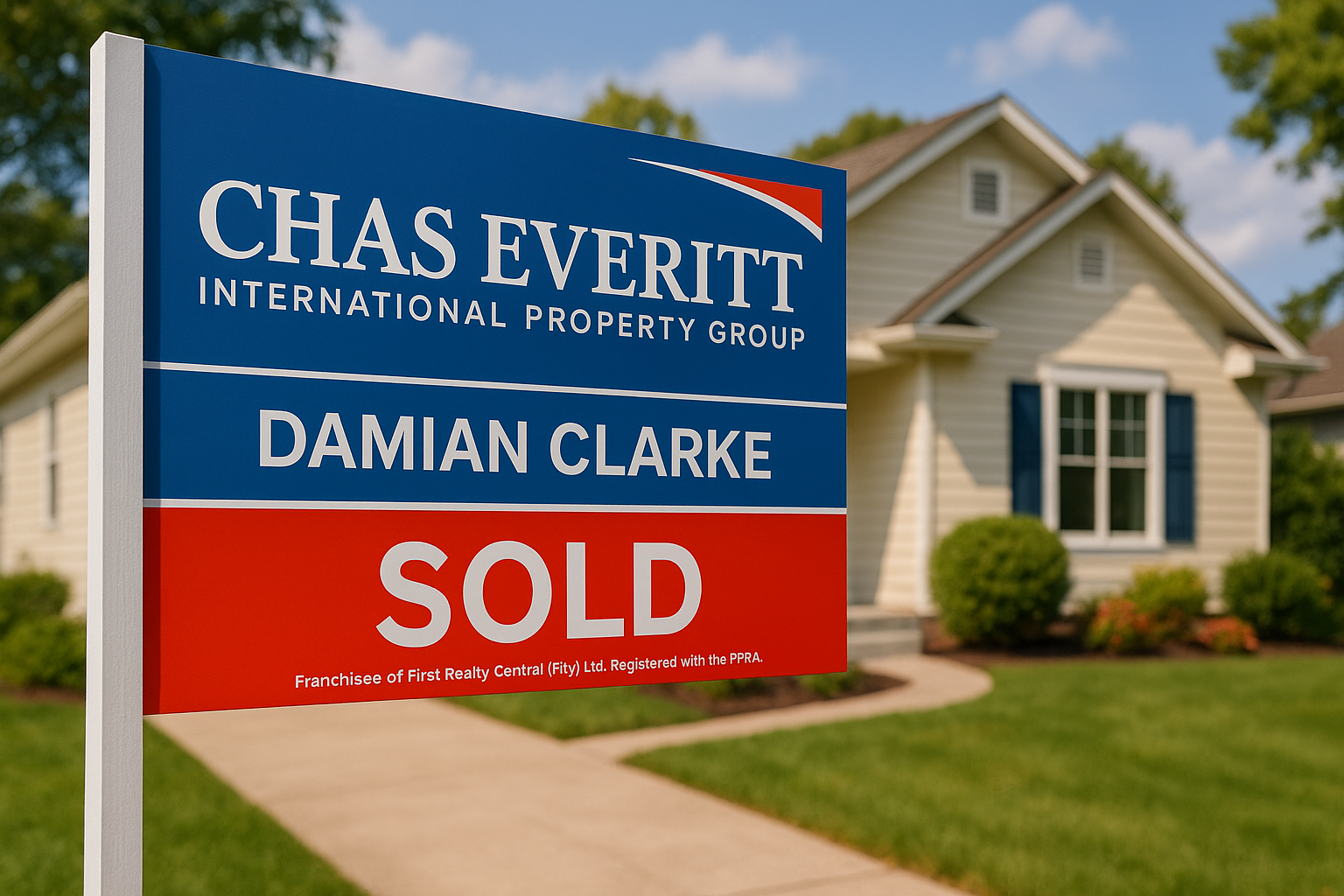
How Much Do Estate Agents Get Paid in South Africa?
You’ve probably heard estate agents earn a fat commission when they sell a house. But have you ever wondered how much they actually take home?
If you’re thinking of selling your home, you’ve likely done the mental maths. 4 to 6 percent of your sale price feels like a lot to hand over. You might be wondering if that money really goes straight into the agent’s bank account, and if so, for what exactly?
The short answer is that it’s not that simple. And it’s rarely as glamorous as it sounds.
Estate agent commission in South Africa comes with a long list of caveats, conditions and behind-the-scenes splits. Unless you’ve worked in the industry yourself, most of this gets glossed over.
In this article, you’ll get a clear breakdown of when commission is actually paid, how much commission is typical in South Africa, and what agents really earn after splitting their fees with their agency, co-agents and even mentors.
This will help you go into the sales process with open eyes and maybe even a few smart questions to ask before you sign a sole mandate.
When Do Estate Agents Get Paid?
In South Africa, estate agents only receive their commission once the sale is officially completed. That means the property needs to be transferred into the buyer’s name and registered with the Deeds Office. Until that happens, no commission is paid out.
The buyer also needs to have secured their finances. If they’re applying for a bond, the bank needs to approve and release the funds. And if they’re using proceeds from another sale to buy your property, that sale has to be finalised too.
All of this takes time. Even after the buyer signs the offer, you’re often looking at several weeks or even a few months before everything is wrapped up. Delays at the Deeds Office, slow bond approvals or a buyer needing to sell their own property first can all push things out further.
So while an agent might find you a buyer relatively quickly, they’re only paid once the deal is truly done. No transfer, no commission.
How Much Is Estate Agent Commission in South Africa?
Estate agent commission in South Africa typically sits between 4% and 6% of the final sale price of your property. That percentage is usually agreed upfront when you sign a mandate with the agency, and it can sometimes be negotiated, depending on the agent or agency.
Let’s say you sell your house for R3 million. If the agreed commission is 5%, that’s R150,000. But here’s what most sellers don’t realise - that full R150,000 doesn’t go straight into the agent’s bank account.
In fact, it almost never does.
Most real estate companies in South Africa operate on a split model. The agent and the agency divide the commission, usually 50/50. (some companies do offer better splits)
That’s before any other splits come into play. If the agent worked with a colleague on the sale, they’ll split their share again. If an agent from a different agency brought the buyer, the two agencies will also split the total commission. And if one of those agents isn’t fully qualified they might have to give a percentage to their mentor.
Suddenly, that big commission looks a lot smaller.
Example: R2 Million Sale
Let’s break this down with a real-world example. Say your property sells for R2 million and the agreed commission is 5%. That’s R100,000 in total commission.
Now let’s look at how that gets divided.
Agent and agency split 50/50
The estate agent doesn’t keep the full amount. Most agencies in South Africa operate on a 50/50 split, so the agent gets R50,000 and the agency keeps the other R50,000.
Another agent is involved in the sale
Let’s say you’re working with an agent duo, which is very common. They split their R50,000 share equally, so each agent walks away with R25,000.
One of the agents is still in training
If one of the agents involved isn’t yet fully qualified (a “candidate property practitioner”), they may need to pay a portion of their share to their mentor. That could be anywhere from 5% to 15% of their take-home commission.
So, from that original R100,000, the agent who did the show days, handled the paperwork and helped secure the buyer may only end up with R17,500 to R25,000, depending on the splits.
It’s a far cry from the full commission amount most people imagine.
Why Understanding This Matters to You as a Seller
So why does all of this matter to you?
Because when you understand how commission really works, you’re better equipped to make smart decisions about who you choose to sell your home, and what kind of service you expect in return.
It’s easy to look at the top-line percentage and assume agents are overpaid. But once you know how many hands that commission passes through, you start to realise that a good agent isn’t just pocketing a quick five percent. They’re often working for weeks or months, dealing with buyers, paperwork, follow-ups and delays, all without guaranteed income until the deal is registered.
This also gives you room to have more informed conversations with agents. You might feel more comfortable negotiating commission, or you might decide that an agent offering a slightly higher percentage is worth it because they offer better marketing or have stronger networks.
You’ll also be more aware of the timeframes involved. Just because an offer is signed doesn’t mean the deal is done. Knowing that your agent only gets paid once the sale is finalised can help set the right expectations and build mutual trust.
Bottom line... the more you understand how commission works, the more control you have over the sale of your property.
Quick Tips for Sellers
If you're planning to sell your home, here are a few practical takeaways to keep in mind when it comes to estate agent commission:
1. Ask about the commission upfront
Don’t be afraid to ask how much commission the agent charges and whether it’s negotiable. Some agents are flexible, especially on higher-value properties.
2. Understand what you’re paying for
A higher commission doesn’t always mean a better agent, but rock-bottom fees can sometimes mean cut corners. Ask what’s included — like marketing, photography, home staging or access to a larger buyer database.
3. Know when the agent gets paid
Commission is only paid once the property is registered in the buyer’s name. So don’t expect the agent to be paid the moment you accept an offer.
4. Be realistic about what the agent earns
That five percent commission gets sliced up more than you think. If your agent is responsive, helpful and pushing the sale forward, they’re likely earning every cent of their cut.
5. Choose someone you trust, not just someone who’s cheap
This is probably your biggest financial asset. Make sure you’re working with someone who’s going to help you sell it properly — not just quickly.
